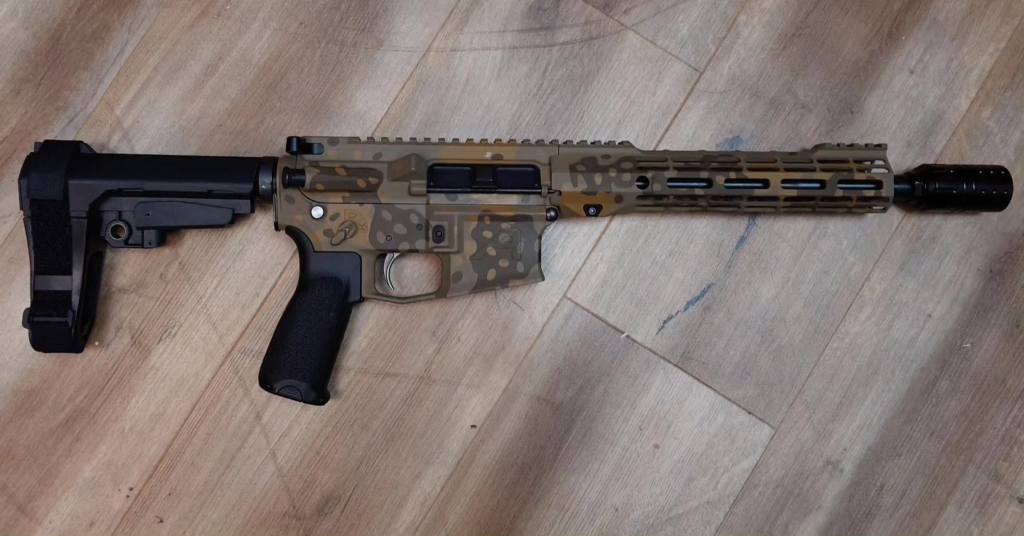California’s AB 173: Navigating the New 1-in-30 Firearm Purchase Law
As of January 2024, California has introduced Assembly Bill 173 (AB 173), a legislative measure that impacts firearm enthusiasts and purchasers across the state. AB 173 restricts individuals to purchasing only one firearm per 30-day period. This unconstitutional law, while seen by some as a regulatory burden, can be navigated effectively by informed and responsible gun owners. In this article, we will delve into the specifics of AB 173, its implications for firearm enthusiasts, and what you need to know to stay compliant and continue enjoying your Second Amendment rights.
Understanding AB 173
AB 173 is a law passed by the California State Legislature and signed into law to regulate the frequency of firearm purchases. The core provision of this law is the limitation on the number of firearms an individual can buy within a 30-day period. This applies to all types of firearms, including receivers, frames, rimfires, handguns, rifles, and shotguns.
Key Provisions of AB 173
- 30-Day Purchase Limitation:
- Individuals are now restricted to purchasing one firearm every 30 days. This rule is designed to prevent stockpiling and potential trafficking of firearms but can be seen as an opportunity to make more thoughtful and planned purchases.
- Enhanced Background Checks:
- The law mandates more rigorous background checks, ensuring that all legal and safety requirements are thoroughly met before approving any firearm purchase. This helps reinforce the integrity and responsibility of lawful gun owners.
- Amendment to Penal Code Section 27545:
- Penal Code Section 27545 has been amended to include specific exemptions and conditions under which the 30-day limitation may not apply. These exemptions include purchases by law enforcement officers, licensed firearms dealers, private security companies, and individuals replacing lost or stolen firearms. Additionally, individuals with special permits may also be exempt from the 30-day restriction. If you have a Curio & Relic (FFL #3) license, also known as firearms collector, you are allowed to purchase more than one firearm in 30 days. For this to work, the collector must also have a C.O.E.
- Dealer Compliance:
- Firearms dealers are required to enforce this limitation, ensuring that no individual can purchase more than one firearm in 30 days. This underscores the importance of working with knowledgeable and compliant dealers.
- Penalties for Non-Compliance:
- Violating the 1-in-30 rule can result in significant penalties, including fines, suspension of firearm purchasing rights, and even criminal charges. Compliance ensures that responsible gun owners avoid legal issues.
Why AB 173 Was Implemented
AB 173 was introduced as part of California’s efforts to regulate firearm purchases. By limiting the number of firearms an individual can purchase within a specified period, the law aims to:
- Reduce Illegal Trafficking: Prevent bulk purchases that could be diverted to the black market.
- Promote Responsible Ownership: Encourage buyers to make considered, thoughtful purchases.
- Enhance Public Safety: Decrease the chances of firearms falling into the wrong hands through stringent background checks and purchase limitations.
Staying Compliant and Informed
As a firearm enthusiast, staying informed about changes in legislation is crucial. Here are some steps to ensure compliance with AB 173:
- Regular Updates: Keep abreast of updates from the California Department of Justice and other relevant authorities.
- Consult with Dealers: Work with knowledgeable and licensed firearms dealers who can provide guidance and ensure your purchases comply with the new law.
- Education: Continuously educate yourself on safe and responsible firearm ownership practices.
Conclusion
Assembly Bill 173, as codified in Penal Code Sections 27535, 27540, and 27545, introduces significant changes to the way firearms are purchased in California. By understanding and adhering to the provisions of this new law, firearm enthusiasts can continue to enjoy their passion responsibly and legally. While the 1-in-30 rule may require some adjustments, it also underscores the importance of thoughtful and responsible gun ownership. Embrace this opportunity to demonstrate the positive aspects of the firearm community and your commitment to lawful and safe gun ownership.

